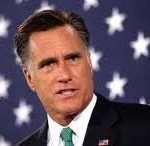
by | Nov 2, 2012
 Below is the full text of the “Letter to the Editor” I sent to several newspapers in Iowa’s 3rd Congressional District. I believe it makes the case against re-electing Leonard Boswell in a concise fashion. If there is anyone you know still on the fence in this race feel free to forward it to them.
Below is the full text of the “Letter to the Editor” I sent to several newspapers in Iowa’s 3rd Congressional District. I believe it makes the case against re-electing Leonard Boswell in a concise fashion. If there is anyone you know still on the fence in this race feel free to forward it to them.
——————————————————————————————————
For the last ten years I have been represented in the U.S House by Rep. Leonard Boswell. During this time I have often disagreed with his positions, but never have I been more convinced that he has grown out of touch with the challenges facing my fellow Iowans, and our nation at large, than I am this year.
The number one piece of evidence proving this has been his approach to our country’s fiscal matters over the last few years. The reason I am so disappointed in Leonard Boswell is because I did something that has seemingly gone way out of style these days, something even nearly unthinkable actually—I looked up his voting record. More unbelievable perhaps is that I didn’t stop there; I had the nerve to continue doing my civic homework by looking up the record of his opponent Tom Latham as well.
Anyone choosing to do the same will find out that since 2009, the self-proclaimed fiscally conservative “Blue Dog†Democrat Leonard Boswell has cast yes votes on the following pieces of legislation:
• Economic Stimulus Bill—over $800 billion added to the national debt, more than a trillion dollars with interest included (passed the House 246-183 on Feb. 13, 2009).
• Obamacare—price tag of $900 billion over 10 years at passage, most recent CBO scoring nearly doubled this amount to $1.76 trillion (passed the House 219-212 on March 21, 2010).
• Raising the debt ceiling—passed the House 218-214 on December 16, 2009.
• Cap and Trade—according to the Obama administration itself, would have cost Americans up to $200 billion a year (passed the House 219-212 on June 26, 2009).
Meanwhile in the same span he voted against the following measures:
• Cut, Cap, and Balance—passed the House 234-190 on July 19th, 2011
• Debt ceiling bill – This is the John Boehner version that would have raised the debt ceiling in exchange for limits on discretionary spending (passed the House 218-210 on July 29, 2011).
• Reducing spending to F.Y 2008 levels—passed the House 256-165 on July 25, 2011.
Two things of note here are, 1) Tom Latham had the foresight and fiscal decency to vote against all the above bills that Leonard Boswell voted for, and 2) Though Mr. Boswell may have been a fiscally conservative Democrat at some point during his career in Washington—over the last three years he has shown zero concern for the massive debt that has crippled this economic recovery. In fact, he remarkably couldn’t even bring himself to support spending at the level we did just four years ago.
Besides being pleasantly surprised at how rock-solid Tom Latham has been on Federal spending, the thing I took away most from researching these two candidates is how disingenuous it is for Leonard Boswell to claim the mantle of “Blue Dog Democratâ€.
The reason this should matter to voters of all stripes on November 6th is it invites the following question:Â How can we expect our political leaders to do what they say they will once elected, if they are not even who they claim to be while running for office?
Especially since 2009, only one man in this race has had his eyes on the future fiscal health of this country, and by extension the next generation who will inherit this future—and that man is Tom Latham.

by | Nov 1, 2012

The Candidates
Dan Zumbach (R) vs. Nate Willems (D)
Democrat Nate Willems has spent the last 3 ½ years in the Iowa House and is an attorney who graduated from the U of I law School and now specializes in worker’s rights cases. Dan Zumbach is a farmer who has also served on the West Delaware School Board and is heavily involved in coaching youth sports and leading 4-H groups.
The District
Northeastern Iowa is home to Senate District 48, which consists of all of Delaware, most of Linn, and small portions of Jones and Buchanan Counties. Republicans hold a slight advantage in registered voters, the numbers shake out like this—(R-12,949) (D-12,355) (NP-18,082) (R+594).
The Race
Like in most political races this one will come down to two things—the candidates and the money they have to spend. In both areas there couldn’t be much more separation between the two camps.
Dealing first with the money, Willems raised an amazing $180,000 on his own. A fairly high number is to be expected from a 3+ year member of the Iowa House, but still this is a lot of money. On top of that the Democrat party tipped their hand that losing this race would be disastrous by throwing in an amazing $237,000. Zumbach did very well for a first time candidate by raising $90,000 on his own, while the GOP chipped in $23,000.
It is worth noting that the numbers for both are slightly inflated because both gave big chunks of the money they raised back to the Parties who then spent it for the candidates, largely on advertising. After these transactions are factored in the Democrats spent $97,000 of their own money on Willems, while Zumbach actually gave the GOP $2,000. The bottom line is that Willems has well beyond a 2:1 money advantage which has allowed him to encompass all media platforms and go very heavy on mailers.
The other thing that jumps out is how very different these two men are. Willems is the young up and coming Democrat/ lawyer while Zumbach is the community anchored, rugged farmer. Much of the result here will come down to which type of voter comes out in larger numbers on Tuesday. Though Willems has clearly proven he has support by being elected multiple times in this general area, both the House districts that make up this Senate District contain more Republicans than Democrats and this Senate District doesn’t resemble his old House District as much as one would expect. On paper it would seem the obvious advantage would go to the “incumbent”, who also happens to hold a huge money advantage.
The reason I’m not willing to say this race necessarily goes to the winner on paper is that Willems, though a current House member, is running in a largely new district and for a different seat. Though some of it is because the Democrat Party see Willems as a future big player, I have a feeling the huge amount of cash they injected in this race has something to do with Zumbach running strong and resonating with the voters in District 48.
I will be closely watching for this race as the returns come in Tuesday—if this seat goes Republican not only was this race a bad investment for Democrats…they are in for a bad night.
Further Information
Dan Zumbach – DanZumbach.com
Nate Willems – NateWillems.com
Â
![Waechter’s Final Pre-Election Weigh In: No Matter How You Vote, the Economy Will Not Improve]()
by Steven Waechter | Oct 29, 2012
 I cast my ballot early. I didn’t vote third-party and therefore my vote isn’t being wasted. It also isn’t going to matter.
I cast my ballot early. I didn’t vote third-party and therefore my vote isn’t being wasted. It also isn’t going to matter.
Since 1990, the United States has run aggregate trade deficits above $8 trillion. This is funny, because in 1990 the M2 metric of currency supply was only $3 trillion. There should be nothing but dust coming out of the ATM machines. We have purchased entire merchant-fleets full of foreign goods, and paid for it by quite literally printing money.
Foreign countries, being more blatant about their currency devaluation policies, have been willing to go along with this arrangement. The result is this dynamic: The US prints dollars to buy goods from China, and the Chinese central bank prints yuan to buy the dollars. We get cheap Chinese stuff, the Chinese central bank gets huge dollar reserves, and the Chinese people get jobs and lots of inflation.
As the years went by, this dynamic absolutely shattered the productive impetus in the American economy. There is no reason to manufacture anything, or engage in productive activity in general. There is also no reason to hire people to help you be productive.
You can see this dynamic in your own communities, with factories that are closed, the kids that can’t find jobs, and farmers – busy producing inflation-sensitive commodities on land, which can’t be outsourced – buying new trucks with cash. The illness in our economy is bad monetary policy.
In a normal economy, if there is demand for consumer goods, entrepreneurs have to take land, labor, and capital and combine them in a way that produces goods efficiently, and at a price the general public can afford to pay. The American economy has another option – we can simply print money and spend it on imports, which is much simpler, requires no investment of capital or any hiring, and is much cheaper.
The result was the largest consumption binge in history, and an economy dependent on investment bubbles – tech stocks, housing, government bonds. The Federal Reserve poured new money into the financial system. You could get a home equity loan to cover your credit card debt, rung up at retail outlets selling almost exclusively imported goods.
Since manufacturing was on the way out, the service sector was the place to be, and the best service sector jobs require college degrees, so the answer is to go to college. Both parties agreed; the answer wasn’t to address the problems with our monetary system, but to attend college. Every young person was told that college is critical.
Now, we have more people in their 20’s living with their parents, more college graduates than ever are working part time, if they can find jobs at all, and the only policy solutions coming out of our elected officials is to double down on college, fund green energy schemes ( I‘m talking about you, Chuck Grassley) and economic development kitsch projects at all levels, building economic Potemkin Villages designed to try and keep the consumption binge going.
Close down Maytag? No problem! Build a race track! Remember when Nancy Pelosi said that unemployment checks would stimulate the economy? People need to spend, spend, spend, because there is no work, work, work.
Without the inflationary monetary policy coming out of the Federal Reserve, the government could not run the enormous deficits, the trade deficit couldn’t have gotten this large (currency would have become scarce, and productivity more valuable), and the government would have to be honest about the absurd arithmetic surrounding our entitlement programs.
Therefore, neither party will countenance a serious challenge to our current monetary system. Even Paul Ryan’s budget plan – so maligned by the left – doesn’t eliminate the deficit nor tackles entitlements. Sound money might even threaten the defense budget, and is therefore terrorism.
So, Barack Obama champions stimulus programs to re-inflate consumption and crows about tariffs on Chinese tires; Mitt Romney labels China a currency manipulator for being willing to bite the inflation bullet themselves and hold our currency as a reserve.
Work in a factory keeps their people busy and gives them the illusion of progress – a bit like how college keeps young people in America busy and gives their parents the illusion that their children will “amount to something.“ Concerns that college diplomas are worthless and that the wages of the Chinese factory worker are shredded by inflation are secondary.
Offshoring is not the machination of evil capitalists; it is a phenomenon of monetary policy, plain and simple. Other countries are willing to hold our currency as a reserve, so we can buy imports with inflation. According to the Examiner, Jeep is next on deck to offshore.
So, services and technological expertise is the key to success in America, as long as another large, developing economy doesn’t devalue their currency and start holding dollars as a reserve.
Especially not one with a large, English-speaking population, and definitely not one with a past influenced by British rule. Why, if that happened, we could just print money and buy our services from that country, and you would run the risk of not fully understanding the technician’s accent the next time you have to call tech support, which is simply unimaginable.
I cast my vote. I ended up voting for the one that I figure is less likely to throw me into a gulag. I suppose this makes my vote “idealistic.â€
Here we are. We have an economy that cannot produce wealth, based on consumption, with a government that we cannot finance and cannot change. We are consistently running trade deficits in excess of $40 billion per month but are told that we lack demand for stuff, almost 50 million people are dependent on food stamps, and an entire generation is shacked up at home, paying their student loans and otherwise too poor to participate in the consumption economy. Yet, there is no stomach for change.
When debating Walter Mondale in 1984, Ronald Reagan cited Cicero and remarked, “If not for the elders, correcting the mistakes of the young, there would be no State.â€
What are the young supposed to do when their elders who run the government have lost their minds?
The post Waechter’s Final Pre-Election Weigh In: No Matter How You Vote, the Economy Will Not Improve appeared first on The Conservative Reader.


by | Oct 28, 2012
 For those who haven’t paid attention to The Des Moines Register’s recent editorial board history, there is no question their endorsement of Mitt Romney is a big story. This history includes a 40 year gap in backing a Republican for President, spanning all the cycles between Richard Nixon’s second run and Mitt Romney’s second bid for the oval office.
For those who haven’t paid attention to The Des Moines Register’s recent editorial board history, there is no question their endorsement of Mitt Romney is a big story. This history includes a 40 year gap in backing a Republican for President, spanning all the cycles between Richard Nixon’s second run and Mitt Romney’s second bid for the oval office.
Over the next week much of what you hear from both the left and the right will be various forms of skepticism, questioned motives, and outright dismals—including claims this was payback for Obama disrespecting them last week. Our readers clearly know we generally don’t have much love for The Register, and specifically we exposed the ridiculous intellectual dishonesty of their 2008 presidential endorsements.
Not only will this reversal-of-course make national headlines in the coming days, it will alienate their shrunken consumer base of hard-line Democrats. This prompts the questions: Is it possible they have turned over a new leaf, or was this retribution and/or just a disingenuous ploy for attention? Surprisingly, my sense is it’s likely the former and not the latter.
What To Make Of This?
Having noted their highly partisan past, I believe all the suspicion and skepticism surrounding this endorsement is largely unfair. The Register deserves the benefit of the doubt for two reasons.
First, Republicans have yearned for a state paper that played things close to down the middle for years. To finally see evidence this institution may be heading this direction and react by simply dismissing it out of hand is biased in and of itself.
Many will say this one action cannot undo years of daily left-slanted journalism, and they are correct, but realize as well that this endorsement is no small thing. If Romney was up 7-10 points here in Iowa you could make the case they simply were backing a sure winner—the reality is that this is a very tight race and The Register’s abandoning of Obama could actually have a small impact, especially on those somehow still wavering voters.
The other reason Republicans shouldn’t cheapen this nod to Romney lay in the actual substance of the endorsement itself.
Before reading it I was expecting heavy equivocation ( ‘though we like Romney on X, we fear he doesn’t understand and will be damaging to Y and Z’ )—this however was largely not the case.
Though sure to say America needs to be even more hospitable to illegal aliens and that losing “progress†on gay and transgendered issues is unacceptable—the remaining balance of the endorsement did not spare Obama on his poor record and laid out a strong case for why Romney would succeed in fixing turning around the economy,
My View
The text reveals this was an “endorsement-endorsement†and not just lip service. Nobody has been harder on The Des Moines Register in recent years than The Conservative Reader, but judgment must be cast on words and deeds not prior reputation. In this case The Des Moines Register was willing to put the two candidates on a scale and report how they saw the resulting measurement.
Going forward, if and when The Register is willing to give Republicans a fair shake—than Republicans should be willing to return the favor.
![Waechter’s Final Pre-Election Weigh In: No Matter How You Vote, the Economy Will Not Improve]()
by | Oct 25, 2012
 The Des Moines Register’s Editor, Rick Green, last night published some details around an interview that the Register’s editorial board held with President Obama Tuesday morning. An interview they could not, at first, talk about publicly. An off-the-record conversation that they say will contribute to their endorsement decision, and the conditions of which will not affect their decision.  Since Rick’s original online post, the White House has released their own transcript of the conversation.
The Des Moines Register’s Editor, Rick Green, last night published some details around an interview that the Register’s editorial board held with President Obama Tuesday morning. An interview they could not, at first, talk about publicly. An off-the-record conversation that they say will contribute to their endorsement decision, and the conditions of which will not affect their decision.  Since Rick’s original online post, the White House has released their own transcript of the conversation.
To his credit, Rick was clearly frustrated with the White House for putting such severe restrictions on the 30 minute telephone interview. He is convinced that Iowans need to hear what the President had to say, and that Iowans would be influenced positively by what Obama shared with the editorial board. The Register has been consistent in their effort to promote transparency in government, and should be applauded for their efforts.
Obviously, the President’s campaign (did we say “White House”?  Are the two the same?) was sensitive to the impact that even a handful of words can have in the world of instant communication. But this administration has been a paragon of secrecy since moving into 1600 Pennsylvania Avenue, and the 2008 campaign promise of transparency has proved not only to be a ruse, but largely ignored by both campaigns in 2012 and the mainstream media.
Rick’s comments attempt to provide an element of transparency at least to the Register’s process, but it’s unfortunate that he treats the President’s requirements for this interview as inevitable. Â Even though he challenged the decision, he said they “relented and took the call. Â How could we not?” Â I think the Des Moines Register’s influence is adequate enough that if they balked, it would have looked bad for the President and the White House eventually would relent because they would have to. Â How could the Register endorse the President without such a conversation?
But, given the idea that Obama is just so important and powerful a man that he should be listened to, the secondary piece of this was amazing to me. Â Rick stated later in his post that the “the White House’s decision won’t play a factor in our board’s final endorsement decision.” Â Perhaps that was a coded message to the Obama team that just the opposite was true. Â But it escapes credibility to believe that anyone in the Register’s position would not give serious consideration to this and other examples of the President’s opaqueness and attempts to control the messages going out so desperately. Â How the President of the United States tries to hide the most trivial information should have a substantial impact on the Editorial Board’s perception of this administration.
Looking back on this, before the White House released the transcripts, it is wildly crazy that there was any concern about the contents of the interview. Â The transcript was about as mundane as the first Presidential Debate. Â The sense is that the President has a cozy enough relationship with left-leaning media such as the Register that they can talk casually about how they will continue to change America in ways that the public doesn’t need to hear, but that the Register’s editors should hear in order to provide the “right” endorsement. Â Even though the Register apparently wants to avoid any such appearance, this sounds like a lot of back room dealing with members of “the team” to get the endorsement. Â Perhaps the White House figured out that the Register has more integrity than that. Â What concerns me is, what kind of off-the-record conversations are going on with other media organizations? Â We may never know.
By the way, the Register hasn’t actually stated that the transcript was accurate. Â I’m assuming they can tell us one way or the other, can’t they?
Image © Aaron Amat – Fotolia.com
The post Des Moines Register Challenge: Endorsement In Secret appeared first on The Conservative Reader.


 Below is the full text of the “Letter to the Editor” I sent to several newspapers in Iowa’s 3rd Congressional District. I believe it makes the case against re-electing Leonard Boswell in a concise fashion. If there is anyone you know still on the fence in this race feel free to forward it to them.
Below is the full text of the “Letter to the Editor” I sent to several newspapers in Iowa’s 3rd Congressional District. I believe it makes the case against re-electing Leonard Boswell in a concise fashion. If there is anyone you know still on the fence in this race feel free to forward it to them.




